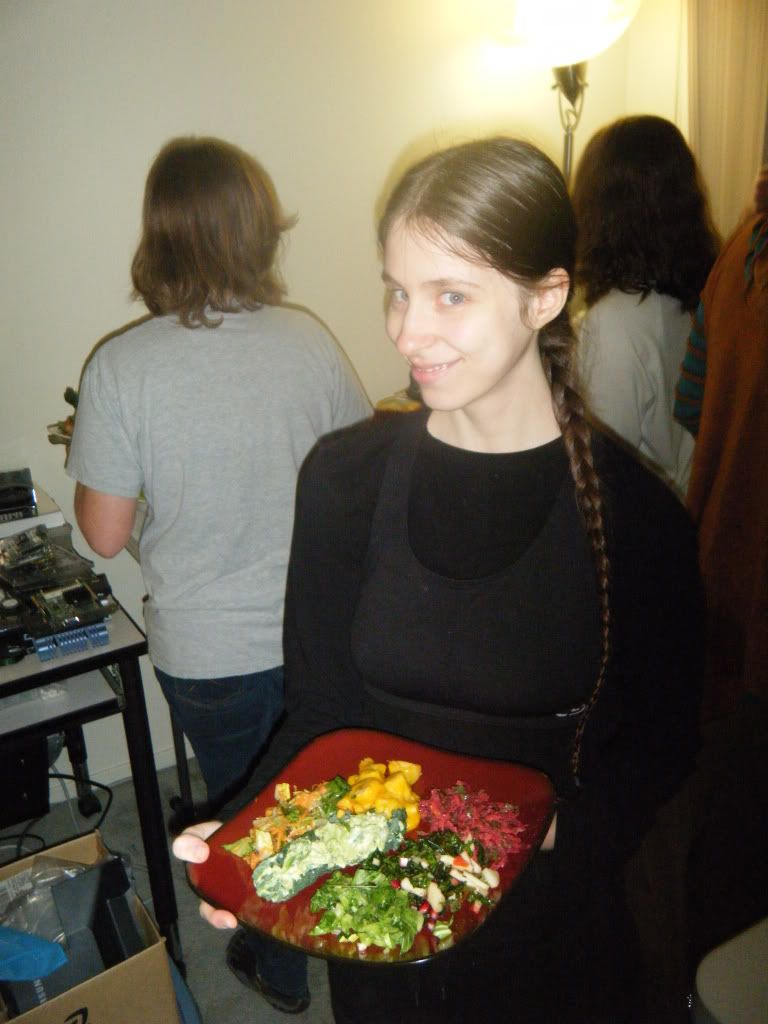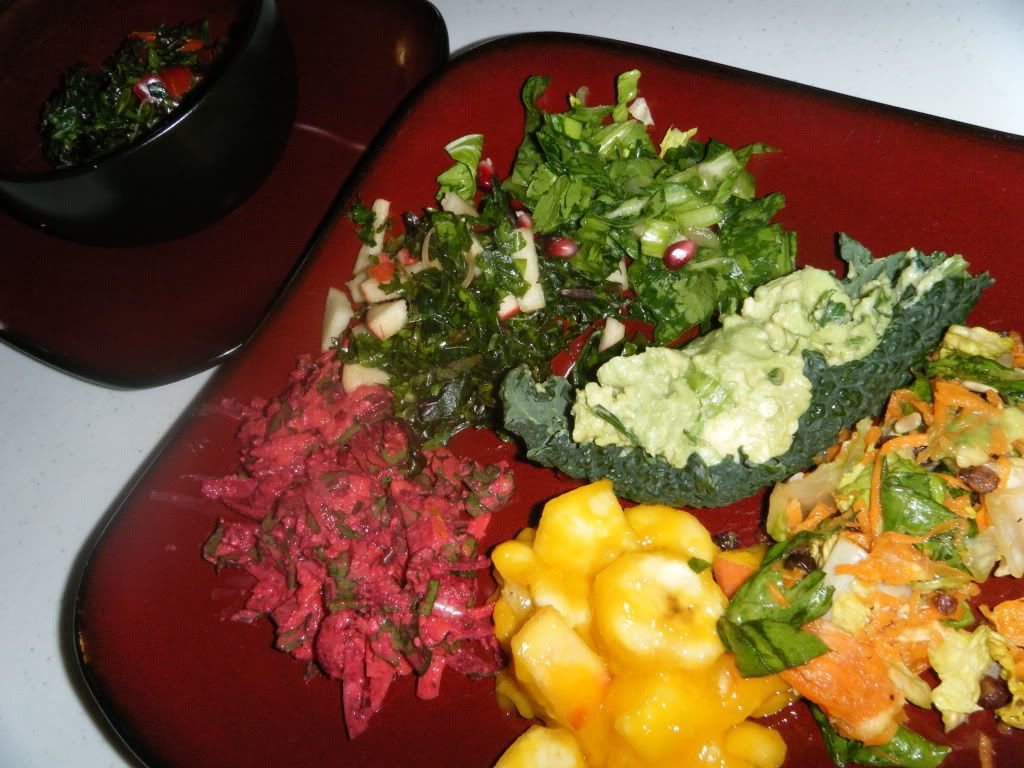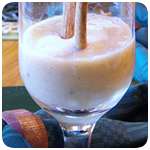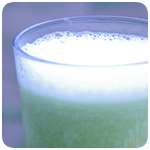Deficient Vegan
Almost everyone has heard about a vegan who became nutritionally deficient, underweight and unhealthy. These stories make a big boom because of the emotions involved for "compassionate eaters" versus "omnivores." As I talk about later in this entry, my main concern is nutrition. I do have ethical priorities, but I don't let them interfere with my health.
- Most people in America are not vegans.
- Most people in America are not healthy.
- Most vegans who are not raw vegans are not particularly healthy although they have less risk of heart disease.
- Most people are not aware of the nutritional content of the food they consume.
- Most people are not aware of where their food comes from.
- Most people do not read the ingredients list on the packages they buy.
All of the above observations are not necessarily connected in any way. Correlation does not mean causation, but it is good to be aware of as many aspects of reality as possible.
Why Vegan Diets Fail
There are a number of reasons why a
vegan diet fails, which is not to be confused with why the typical
raw vegan diet fails. It is a myth that all vegan food is healthy, and it is also a myth that all raw vegan food is healthy.
Here are the typical reasons why a
vegan diet typically fails:
- Consumption of processed gmo soy products
- Consumption of white flour, processed breads, and pastas
- Consumption of white sugar, corn syrup, agave syrup, and other sweeteners
- Consumption of too much cooked food, especially fried, baked and toasted foods
- Too much negativity surrounding diet and lifestyle choices and not enough joy
- Not enough raw vegetables which provide essential amino acids, vitamins and enzymes
- Assuming that "if it is vegan, it must be healthy"
Why Raw Vegan Diets Fail
Just as the above list is not comprehensive, the list below is also just the typical mistakes. I've met hundreds of successful raw vegans who have cured cancer, diabetes, fibromyalgia, candida, and so forth,
but I have also met hundreds of people who are
trying to be raw vegans and who keep "hitting a wall" in their attempt. Here are the typical mistakes:
- Trying to get eighty percent of your calories from fruit (instead of from carbs)
- Eating more than a few nuts daily (sometimes as much as two measuring cups daily)
- Relying on oil to eat salad (and eating 200 calories of oil for every 10 calories of vegetable)
- Making the same five dishes over and over week after week without variation
- Eating too much dehydrated food (store-bought or home-made)
- Spending too much money on super-foods, powders and snacks (like kale chips from the store)
- Neglecting to learn about nutrition, B12, vitamin D, and other critical diet components
- Assuming that "if it is raw, it is healthy" (which isn't true)
- Consuming high fructose agave syrup which is very toxic
- Consuming too many desserts which combine nut-based-protein with dried fruits (which is a digestive hazard)
- Accidentally starving oneself due to eating nothing but salad and very low-calorie greens (although this mistake is uncommon: most raw vegans don't eat as many greens as is optimal)
Observations About Raw Vegan Diets
Of the hundreds of raw vegans I've met thus far, I keep seeing the same pattern over and over again. Not all "raw vegan diets" are alike, and the various different raw vegan diets produce very different results. The following observations are for the general population and may not apply to athletes or people with specific conditions.
Rawvegans who eat too much fat have poor skin and less energy.
Rawvegans who eat too little fruit and drink too little water can be tired and dehydrated.
Rawvegans who do not eat enough vegetables tend to have an array of small problems that come from lack of nutritional diversity.
Rawvegans who eat plenty of vegetables and fruits, with only a small amount of fatty raw foods thrive. These people surpass any other humans I've met in their level of energy, and in their degree of happiness.
Rawvegan Children
I have met rawvegan children, although few, but none of those I met showed any signs of being less than healthy.
Yes, vegan children are often underweight. But this is due to the parents' ignorance. It is not due to lack of animal products.
Breastfeeding
Breastfeeding is vital. You don't see animals in the wild being fed formula in place of their mother's milk.
Any informed person knows that breastfeeding is an important part of upbringing.
I've heard of vegan parents who denied their babies breast-milk and fed them soy milk and other idiotic things. It's just a lack of important information.
Soy Milk
I believe that drinking soy milk is not healthy at all. It is pasteurized, devoid of enzymes, usually comes from gmo crops owned by
monsanto, and overall is nutritionally lacking. Fresh wild soy plants uncontaminated are undoubtedly a good addition to the diet, but soy milk from the market is not.
Weight
In terms of being underweight and overweight, these ideals are a matter of opinion.
The standard for weight continues to go up in America. What is considered "normal" even by a medical point of view is flexible and ever-changing.
Weight is deceiving.
I am the same weight now that I was when I went rawvegan, but my body is much smaller. This is because I have lost fat and put on muscle.
The same jeans I wore a year ago that were skin tight now sag. I can grab fistfuls of the fabric while wearing them. When I bought these jeans they were so tight I had to suck my stomach in to get them on. And yet, I weigh the same.
My weight moves from 120 to 125 pounds throughout the month. I've weighed the same since my initial thirty-pound weight loss when I cut gluten, wheat, dairy, meat, sweeteners and msg from my diet.
Nobody would have said I was overweight when I went raw vegan at 123 pounds, and yet all of my mass was fat, and not muscle. I was horrifically weak for my size and age.
Endurance
A year ago I found it difficult to walk a quarter mile. I became tired and short of breath easily. Now I can walk miles without becoming uncomfortable.
If the land is flat, I can walk all day without discomfort.
My point is, weight is one factor, and it is a factor that can be disputed.
Two people can be the same weight and the same height and they can have entirely different levels of well-being.
Vegan
Some fail to understand is that I am not a die-hard vegan. I am a die-hard raw foodist who happens to also be a rawvegan.
I read and research health in general, not being vegan in particular. Meat or not is fairly irrelevant.
There are some highly healthy cultures throughout history who were vegan. There are some highly healthy cultures throughout history who ate meat. Meat, dairy, eggs and products that come from animals are a small part of a large picture.
Meat
For the most part, I believe the largest reason to go vegan is economical, ecological and ethical. Not because "oh the poor animals are being enslaved and abused" ethical. No, there are other larger ethical reasons.
The meat industry, along with the oil industry, refined sugar industry, tobacco companies, etc, are destroying the planet in many different ways. If you want to hunt your own meat on your own land, then fine, do so.
And I do mean hunt it. That, I believe, is normal, natural, and perfectly okay. A wolf hunts its prey, and so can we.
...But to raise it and mass slaughter them in conditions so filthy and unsafe that American citizens won't even work in these facilities, in an environment that only a desperate immigrant will accept... A facility that pollutes the air and the land to produce a poor quality meat from drugged fat animals raised on gmo feed... That is insanity. That is the height of insanity.
RAWvegan
The emphasis on rawvegan is on RAW. This is why some people obnoxiously capitalize the word RAW every single time they write it. I find it a bit childish personally, so I don't. But the truth of the matter is, that eating a diet that is 80% raw is more beneficial than a diet that is 80% vegan, by far.
This doesn't just apply nutritionally. The "ethics" involved with a raw vegan diet far surpass that of a vegan diet. A raw vegan cuts down on the plastic and boxes used, saving more trees. A raw vegan buys primarily produce, which involves less shipping (because boxed products have ingredients shipped to-and-fro all over the world before reaching the supermarket).
Enzymes
Enzymologists have proven that eating cooked food (in general, this includes rice, tofu, beans, etc) is harmful to the digestive system over time.
We need
enzymes from raw foods to thrive.
Generations of Degeneration
Studies, such as the pottinger cat studies, have proven that what we eat affects the next generation dramatically. Each successive generation is more profoundly affected by a poor diet than the last. This part of the reason why I developed problems in my childhood that were unknown to people under the age of sixty only a hundred years ago.
In the late 1800s nobody had ever heard of diabetes striking someone under the age of fifty. In the 1400s nobody had ever heard of diabetes.
The Cure
The cure has been proven over and over again. Dr. Gerson proved that diabetes was cured on a rawvegan diet before 1920. The Hippocrates Health Institute is curing people of cancer, diabetes, dementia and other "incurable" diseases today with a rawvegan diet today. Countless books are written with people's personal experience of being cured of the "incurable" and the answer is always the same: a diet that is at least eighty percent raw fruits and vegetables, usually ninety-five percent or more.
Fresh Food
Another "deadly mistake" of today's society is how wilted and old most of what we eat is. Even when it is uncooked, raw, from the produce section... Much of the life of the plant is already gone. Food begins to decay the moment it is picked. The rotting process begins.
Fresh produce is incredibly powerful. I've spoken to raw vegans who went on a wholly "wild" diet, eating only what they could forage for days at a time. The light in their eyes as they talk about it is inspiring in and of itself. I have discovered the joys of foraging in my own yard and have been delighted to discover dandelion, clover, burdock root and purslane. Edible foods which already grew there without any assistance from me.
To achieve optimal health and strength, we require food to be as fresh as possible – we require it the same way every animal in nature eats it – fresh.
Fresh means: still growing. Fresh means: completely alive.
One way to get fresh food into your life is to grow your own sprouts. It doesn't require sunlight, fancy equipment or land. Nor does it require a lot of money. Just some time and a little bit of learning curve.
Grocery Store Produce
Grocery store produce is between three days and three weeks old. The average age of grocery store produce is a week and a half. Over that period of time the food is dying, literally. It is slowly rotting, and as the enzymes do their work to rot the plant, they are used up and changed.
When we eat something fresh – something still growing – we get the full benefit of the enzymes and our organs' metabolic enzymes are kept in tact. Beyond that, because we actually are consuming adequate food enzymes for digestion, we digest the full food. We absorb as much of the nutrition when we eat fresher food.
Digestion & Toxins
When you consume something such as french fries, the body gains nothing but calories and sodium. The cooked oil is a toxin to the body. In the blood stream nutrients are collected from various places, such as muscles and bones, and these nutrients are bound with the toxins in order to expel them when we urinate. Whenever a toxin to the body is consumed, we lose vital minerals from our body.
Nutritional "Needs"
This issue is so common and so widespread that the levels of nutrients we "need" according to official sources is inflated. If you eat french fries for breakfast, a milkshake with added refined sugars for brunch, coffee and donuts for lunch, cooked rice for a snack, fried chicken and steamed vegetables for dinner and a handful of conventional pasteurized nuts for a snack, your body will be stressed to its limit.
With a diet like the one I just described your stomach will be hard put to garner any nutrition from anything eaten. It will appear as if you need to consume quadruple the calcium, potassium, magnesium, niacin, etc, to be healthy. This is because so much of the nutrition you're consuming you're not absorbing, and so much of what you're absorbing will be used to deal with toxins.
Nutritional "needs" do not consider the power of your digestion. They are averages. They are not even based upon optimally healthy people. Nutritional vitamin needs are based upon averages. The average person in America is overweight, tired all the time, is taking supplements, is taking medication, and is at least somewhat depressed. These are the people our "needs" are based on.
When the doctor tests your blood levels for the amounts of vitamins and minerals present and then says that you are "deficient" in something, all he is saying is that you have less in your blood stream than the average.
That does not take into account the efficiency of your own body.
Nutritional Education
Nutritional classes should be a part of curriculum at schools from a young age. Most people know more about how their car works than their body. The average sports fan knows more about a given sport than biology. As little as people learn about history in school, they learn even less about food.
We can go weeks without food, days without water, and a couple minutes without breath, but no more. If we go too long without food, water and clean air, we die. If we are lacking in any of these, we become less than healthy. We become ill with tainted water, tainted food, and tainted air.
So why then do we know more about cars, sports and mundane historical facts than we do about our own bodies?
We must live in our bodies twenty-four hours a day.
We spend much less than twenty-four hours watching sports or riding in a car in a week.
We eat many times a day; we inhale a breath thousands of times each hour.
We take birthing classes before giving birth, but nothing is mentioned about the nutritional needs of children or pregnant women. Where is the sense?
Unfortunately, instilling the need for nutritional education upon the system would not fix the problems at hand.
Most mainstream medicine is founded upon a big pile of lies of unfounded theories.
This is one reason why I say that "universal healthcare" is a joke. They've got us asking the wrong questions. If we're so worried about getting healthcare, then we are not spending time focusing on what matters: getting healthy. The current model for healthcare will not make you healthy. They have vending machines in hospitals with soda and potato chips where the nurses get their snacks between patients... And you're going to take their advice?
Complete Protein: The Lies They Still Spread
The person who came up with the idea of a "complete protein" recanted years later saying that her theory was incorrect, and yet that incorrect theory is still being taught.
This is a common theme throughout history. The person who came up with the NPK soil later recanted and said that it would have been better if they had never given their discovery to the industry. Later in life they found the important of micro-organisms in the soil, but profit was being made and the later work was repressed. This is one of many fascinating bits of information in the book Empty Harvest.
My Passion For Health
The average doctor takes four or so hours of time to study nutrition during his college years.
Four hours.
You probably spent more than four hours this week reading a book you like, watching television, or on facebook. But in four, eight or more years they only spend four hours, maybe eight, studying nutrition?
They learn about where the liver is, what the kidneys look like, what the cells are made of, what diseases people get, what the symptoms are, what drugs are currently available, what pills people may take, what the side effects might be... And yet they don't learn what the role of food is!
While I didn't go to college for nutrition, let's look at how much time I've spent researching the topic:
Starting when I was sixteen (in the year of 2005), I began to research my own particular symptoms (since doctors and medications were not helping my debilitating problems). I initially started with any-old internet articles. I signed up for various newsletters. The most useful one I discovered in my first year of research was Dr. Mark Hyman's work. I read an average of an article a day for that first year. Let's round it down to 300 articles.
In 2006 I began to research very particular toxins, such as hydrogenated oils, high fructose corn syrup, white sugar, and so forth, and I began to put together my own articles compiling the information from many different sites. I read less new information for a while and carefully organized what I had learned already.
If you're curious, my first website about health is still up, but it has incomplete information and isn't as well written as my newer articles. I dubbed my first health site
real poison, which I now think is a rather negative way to come at health. Eliminating poisons in your diet is vital, but it shouldn't be the focus.
By 2008 I began reading about studies that have been done, looking into statistics and learning about other sources of health or illness that are outside of food. I got into yoga, tantra, meditation and read The Art of Happiness.
By 2010 I had learned about raw food and I delved deep into nutritional pursuits. I began to investigate the nutritional content and toxin content of very specific foods. I began to uncover "super foods" that are often under-rated beside nobody is selling them in the form of chips, bars or sports drinks. Cilantro, for example, by all means should be considered a
super food.
I began reading books about mental health, spiritual health, nutrition, soil, gardening. I started to learn about foraging, permaculture, sustainable farming, breathing techniques, mental exercises and more.
As I write this now (in January 2012), I've already been studying health, nutrition, food, wellness and fitness for seven years. I go to gatherings with other health-consious people and health educators several times a month. I give lectures and presentations on the topic. I create
nutritionally complete raw vegan meal plans and constantly refine my own diet. I've done personal experimentation and learned through my consultations of other people.
I find information about food, biology, humanity and plants fascinating and engrossing.
I try not to be contemptuous, and I am humbled by all the information that I still don't know. However, I am susceptible to becoming peeved when people doubt my information just because I am not "Dr. Raederle" as if that would somehow make me more knowledgeable.
In
my own journey from being constantly tired, depressed, constipated and ill... to being happy, healthy and energetic, I have become an enthusiastic student of all things relating to health. I am excited when I learn something new about the human body.
I love anecdotal evidence, and I love scientific evidence. I love to listen to people's personal health trials, tribulations and triumphs. I love consulting people on their problems and watching them begin their own transformation. It's rewarding when they come back to me and tell me how amazed they are by the clarity of their thoughts, and height of their energy.
Calories
Some people think that it is impossible to get enough calories on a rawvegan diet. I think these people are unaware of the calorie content in produce.
My morning smoothies often contain the following:
- 2 to 4 bananas
- 1 to 2 cups of frozen or fresh fruit
- 2 tablespoons of spices/powders
- 1 to 3 cups of leafy greens or sprouts
- 1 to 4 cups of water
Can you guess how many calories a day that adds up to?
The average banana has 180 calories.
An average peach contains around 60 calories.
An average cup of leafy greens and/or sprouts is around 30 calories.
Seasonings I enjoy contain 20 to 120 calories for two tablespoons.
My morning smoothie contains 450 to 850 calories.
For example, three bananas, a peach, and two spoonfuls of raw cocoa powder is 720 calories. This is not a low calorie drink at all. And is that a problem that it is high calorie? Not in the least.
Sometimes I'll have half a pint of strawberries (50 calories), two bananas (360 calories) and a spoonful of vanilla (20 calories). That would be 430 calories. This is a reasonable amount of calories for breakfast, for anyone. (However, a diabetic would need to first transition to a complex-carb diet free of toxins before they could transition to a raw vegan diet containing a lot of fruit.)
I eat between 1600 and 3000 calories in a day, entirely from raw fruit, raw vegetables and raw seeds. Sometimes I have a nut or two.
Personally, I don't put much of any weight in calories, but since many people do, I thought I'd demonstrate the amount of calories that may be consumed from fruit. I have a
an entry about calories that I think is important for anyone who has counted calories or is still counting calories.
I have maintained weight without gaining fat and without losing muscle both at 1600 calories a day and at 3000 calories a day by following the rules
that I've outlined with my food pyramid.
Beliefs Aside
Even if you believe you must have meat in your diet, and even if you believe a rawvegan diet does not contain enough calories, it doesn't hurt to add more raw vegetables and fruits into your diet. Just adding them in helps strengthen the capacity of the digestive system. There is no doctor on the planet who denies the importance of eating fruits and vegetables, even if most of them are not educated about the importance of eating them raw.
Much love and light to you, my reader.
Namaste
~ Raederle Phoenix
If you're considering transitioning to a rawvegan diet, or already are a rawvegan, it's important you don't fall into the traps I briefly mentioned in this article.
Read
this article that covers the four largest mistakes by rawvegans and four action steps to avoid them.
Thanks for reading!
If you enjoyed this article, share it with your friends on twitter, facebook and your blog!






